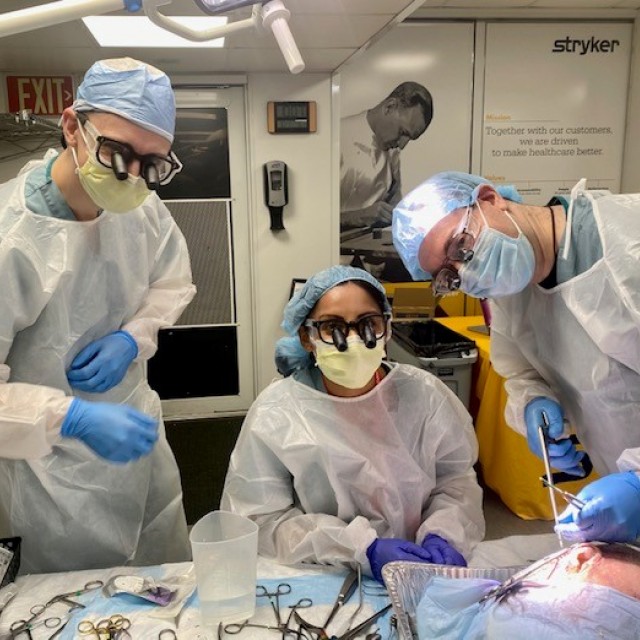All faculty are members of the Pritzker School of Medicine, the #17 ranked medical school in the 2021 U.S. News and World Report for research-intensive schools. Our medical center is part of the University's Biological Sciences Division and is headed by Kenneth S. Polonsky, MD, Dean of the Biological Sciences Division and the Pritzker School of Medicine and Executive Vice President for Medical Affairs at the University of Chicago.
Our comprehensive training program is set on an expanding clinical campus. The University of Chicago Medicine began providing adult trauma care on May 1, 2018; the first patient brought in at noon marked the official activation of the Level 1 Adult Trauma Center, another significant achievement by the organization. The adult trauma program adds to UChicago Medicine's Level 1 Pediatric Trauma Center at Comer Children’s Hospital and its Burn and Complex Wound Center services to provide the community with a comprehensive system of care to treat the full range of trauma injuries in patients of all ages.
In April 2021, UChicago Medicine announced that it earned its 19th sequential "A" rating in patient safety from the industry watchdog Leapfrog Group. In April 2018, UChicago Medicine received the prestigious Magnet Recognition status, the gold standard for nursing excellence and high-quality patient care, from the American Nurses Credentialing Center.
Our medical center holds distinction as a regional, national and international referral center for the specialized care of complex patients with a wide variety of challenging surgical diseases. In addition, we have a long-standing commitment to provide comprehensive care for our South Side community. The jewel of our medical center campus is the Center for Care and Discovery (CCD), our main hospital building, which opened in 2013. The CCD is one of the most advanced clinical and surgical centers in the country dedicated to specialty care, including cancer, gastrointestinal disease, neuroscience, advanced surgery and high-tech medical imaging. The new hospital was designed by world-renown architect, Rafael Viñoly, who created the acclaimed Charles M. Harper Center at the University of Chicago Booth School of Business. This innovative hospital contains ten floors and over 1.2 million square feet for clinical activity. The CCD is an exceptional place to be a patient and creates an enhanced health experience that is focused on quality and safety. We believe that this inspiring atmosphere provides our trainees with a modern environment to learn surgery and conduct world-class research at the forefront of medicine. Our residents have access to state-of-the art simulation training at both the University of Chicago Center for Simulation and Safety and the Northshore Center for Simulation and Innovation. Our goal is to train the best and brightest residents and provide them with the opportunity to seek top-flight fellowships and to eventually become leaders in academic surgery.
Chicago is an extraordinary city and our residency program provides a robust and diverse clinical environment with an ideal blend of community and academic surgical experiences. Our research opportunities are unrivaled, and our leadership is committed to providing a unique educational environment with committed faculty and incredible residents. We believe that after coming to the University of Chicago, you will find that our residents are an exceptional group of some of the most talented resident surgeons in the country.





